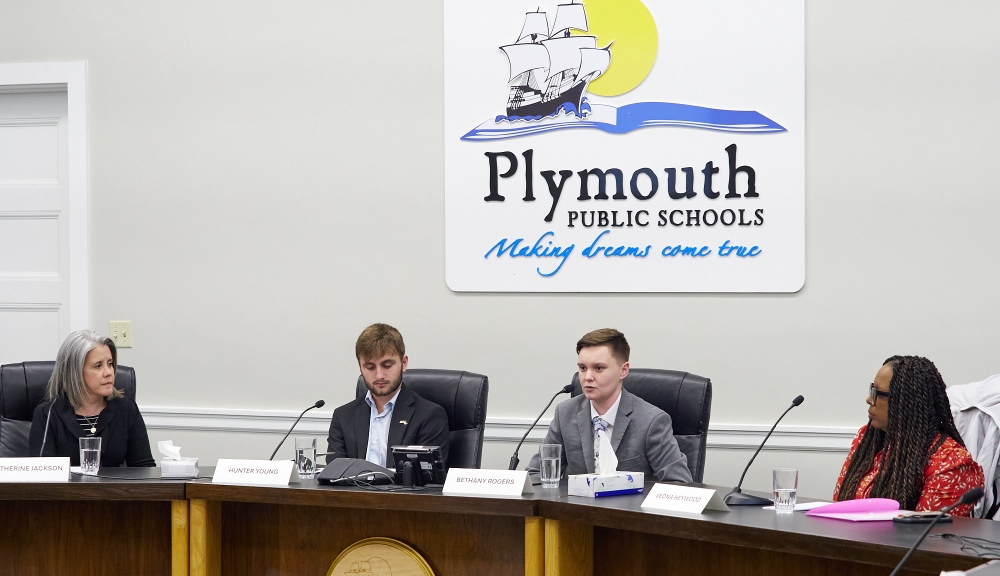It’s easy to predict who will win a place on Plymouth’s Select Board in the May 18 town election – David Golden.
That’s because there’s no contest. Shockingly, Golden is the only candidate for the open seat on the five-member board being vacated by Harry Helm, who didn’t seek re-election because he is moving to Maryland.
“I have never in all these years seen an uncontested selectmen’s race,” said David Malaguti, who has been involved in town politics since his first appointment to the Advisory and Finance Committee in 1976 and is himself a former Select Board member. “This is a first for me.”
Malaguti declined to speculate on why only one person in a town of approximately 70,000 people wants to serve on the board. Although the town manager now handles some duties once assigned to the Select Board – such as making appointments to the fire, police, and public works departments – Malaguti said he does not think there has been a substantial reduction in its significance.
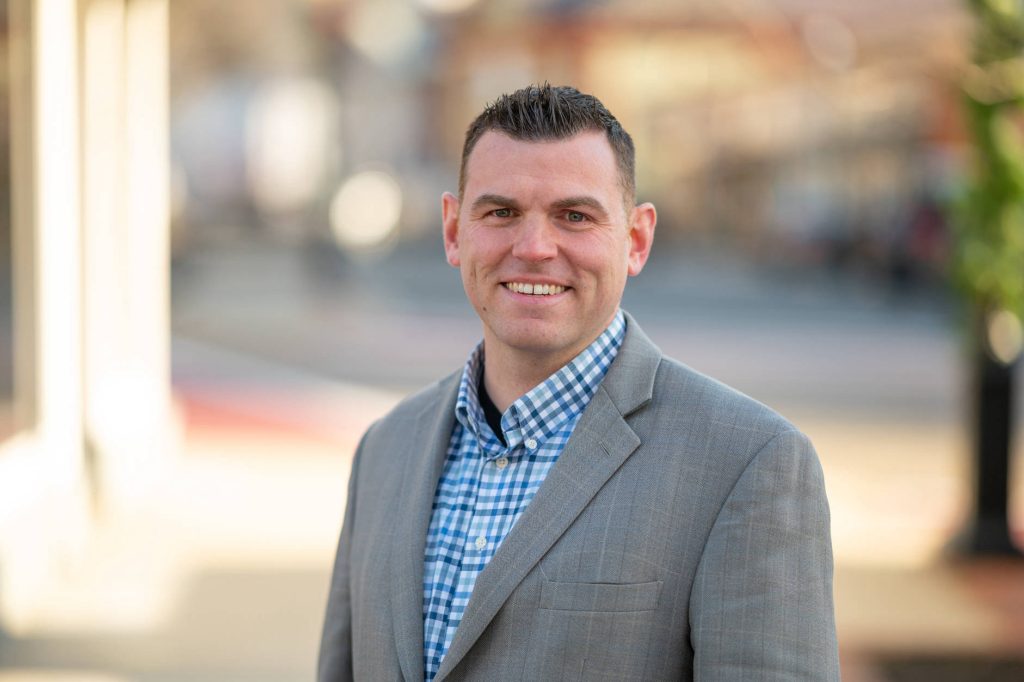
Golden, too, says he is at a loss as to why he has no opponents.
He has been a member of the Cultural Council, serves on the Board of Health and the Manomet Village Steering Committee, is a Town Meeting member, and chairs the Memorials Advisory Committee and Charter Review Committee.
He works for Regional Resource Group, a company that performs assessments for municipalities.
“When you think of an assessor, you think of the person who sets the valuation for your property, but it goes well beyond that,” he said.
As an assessor, Golden said he proposes tax rates, collects data about new growth, and helps forecast revenue.
“In Plymouth, we’ve spent a lot of time artificially suppressing taxes in the community,” he said. “Part of that has been unwillingness to address infrastructure needs.”
Because the town relies on residential property owners for 86 percent of its revenue, it must expand its commercial tax base, he said.
The Select Board, the town’s leading elected executive body (Town Meeting is its Legislature), considers everything from setting the tax rate to outdoor dining to approving liquor licenses to airport noise.
Some speculate that the rising cost of running for office is discouraging people from becoming a candidate. In the 2021 special election for Select Board between Charlie Bletzer, Scott Vecchi, Steven Bolotin, and Vedna Heywood, for example, Bletzer reported spending $24,812, Vecchi $6,126, Bolotin $11,460, and Heywood $9,262.
There are, however, a few contested races in this year’s election.
PLANNING BOARD
Frank Mand and Tim Bennett are running for a five-year term on the five-member board to succeed David Peck, who is not seeking re-election. Both spoke at an April 25 forum sponsored by the League of Women Voters of the Plymouth area, which you can watch here.
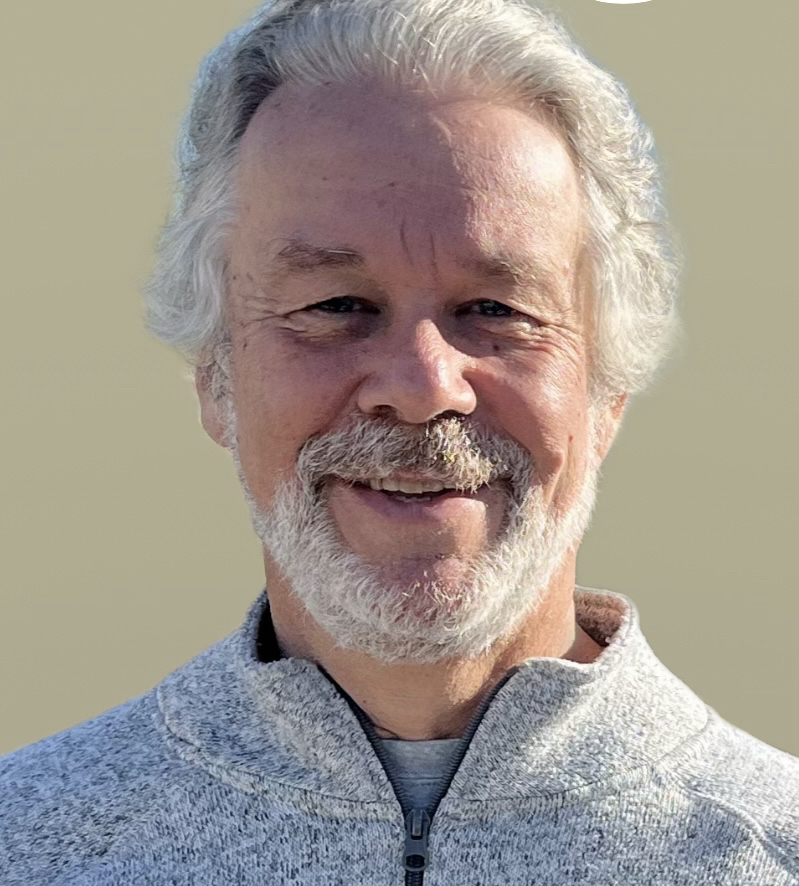
Frank Mand is among those who believe money plays an outsize role in town elections.
“Big money, outside money, has distorted our local politics,” Mand said. He promises to run a “grassroots” campaign, with no donations, no lawn signs, and no postcards.
Mand, who once covered Plymouth government for the Old Colony Memorial, is running against Tim Bennett, a land surveyor.
Mand describes himself as a conservationist. He is vice president of the nonprofit Southeastern Massachusetts Pine Barrens Alliance.
“I see the community as something very, very special in ecological terms,” he said. “That needs to be protected, but also appreciated because it has great value, even economic value to the town.”
Mand said Plymouth is under increasing pressure from developers.
“Housing developers are looking here because of the space and the land we have,” he said. “So, the most important issue is handling growth. We still have all this wonderful open space, 35 miles of ocean.”
Mand previously served on the Planning Board for a two-year term.
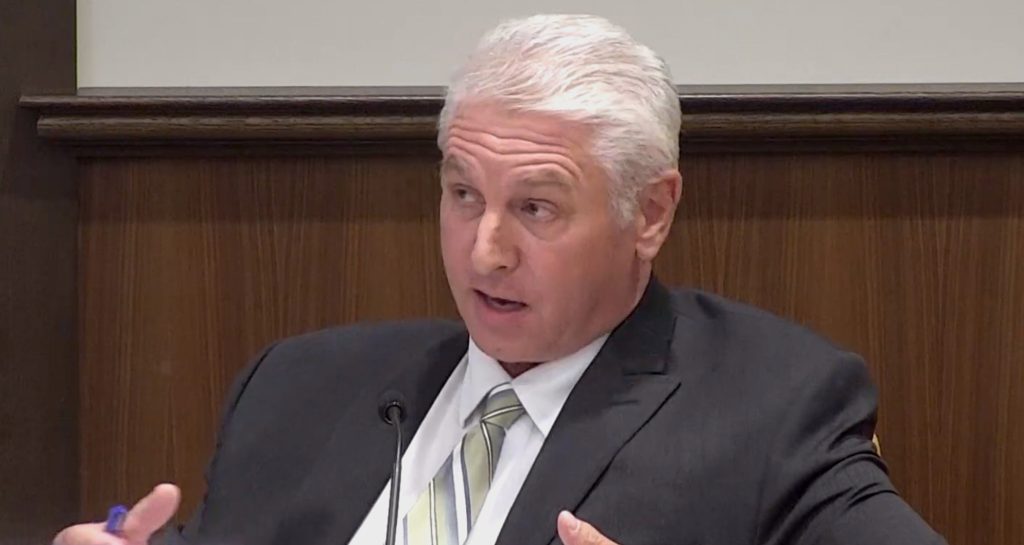
Tim Bennett, who works for Grady Consulting, a civil engineering, land surveying, and landscape architecture firm, has represented clients before the Planning Board. He promised to recuse himself if clients have cases before the board.
He said his skills as a surveyor will benefit the town.
“That experience allows me to be able to look under the hood of projects,” he said.
Bennett said he would encourage “responsible development” to ease the residential tax burden.
He supports establishing a land bank for Plymouth, like the one Cape Cod had and Nantucket and Martha’s Vineyard have.
“If we own the land, we can control it,” he said, explaining that the funds to buy land would come from a transfer fee paid by property buyers.
The funds would be used to buy open space and affordable housing, as Community Preservation funds already do, but also for municipal uses such as schools and fire stations.
“For example, if we know that we’re going to need a school or a fire station in this particular area of town and a parcel of land comes up available in that area, wouldn’t it be great if we could buy that parcel when it’s not an urgent need?” Bennett said.
SCHOOL COMMITTEE
Katherine Jackson, Vedna Heywood, Hunter Young, Bethany Rogers, and Ashley Shaw are running for three seats – each for a three-year term – on the seven-member committee. All of them, except Shaw – who was out of town – spoke at an April 30 forum sponsored by the League of Women Voters of the Plymouth area.
With town and state finances limited and with Covid era federal funding disappearing, all five candidates agree that budget constraints are the biggest issue facing the school system. Town Meeting in April approved a $119 million budget, but school superintendent Christopher Campbell has since warned that layoffs are likely because of a $2 million shortfall. And that’s before a new contract with teachers is negotiated.
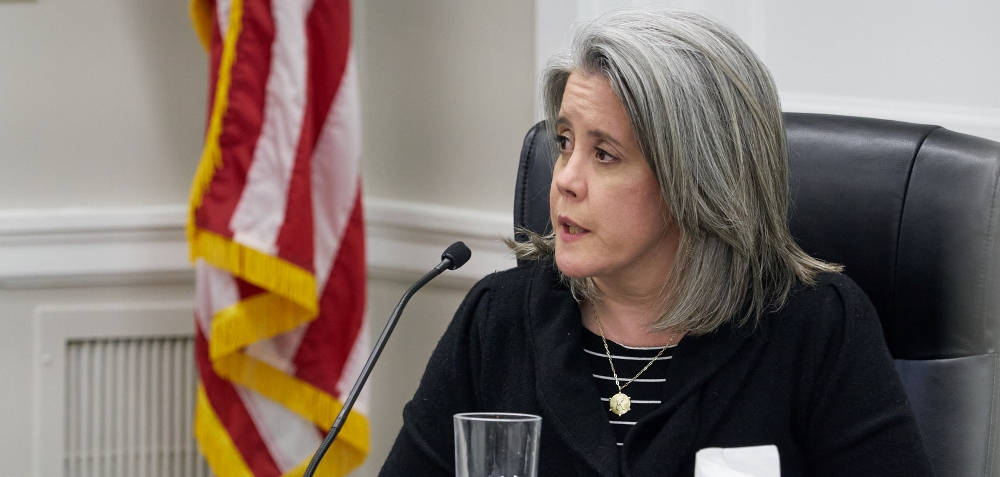
Katherine Jackson, a photographer, is seeking a second term on the committee.
Looming large are contract negotiations with teachers and capital expenses such as keeping buildings up and running, she said. Jackson also places mental health services and support for teachers high on her budget priorities.
“The teachers have taken pay raises over the last few years of one percent, two percent, things that clearly did not keep up with inflation,” she said. “But they’ve also gone the extra mile for our kids when it came to Covid, when it came to finding creative solutions, when it came to mental health. There’s a lot being asked that was never under the threshold of what they thought they’d be dealing with in the past.”
Jackson anticipates that the school committee will have to return to Town Meeting for a special appropriation for the schools once a contract with teachers is signed but warns that the committee should plan for the possibility that the town will reject supplemental funding for the $119 million school budget.
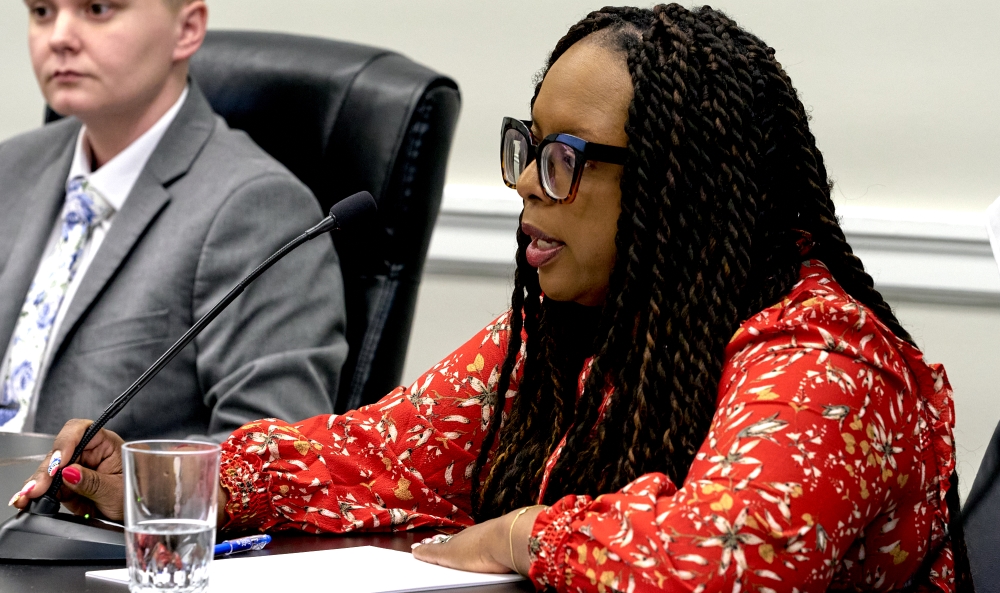
Vedna Heywood, a critical care surgical trauma nurse, is running for her third term on the school committee.
She said at a Plymouth Area League of Women Voters forum April 30 that she wants to make it easier for residents to get involved in decisions about the schools by letting them know ahead of time about important issues.
Heywood said she is also interested in the safety and security of students, as well as recruiting and retaining teachers.
She said she would direct the schools to focus more on obtaining alternative sources of funding, such as grants and partnerships with local businesses.
Heywood said that because of an increase in the number of English language learners in the schools, the local district must ensure that it has qualified and trained staff to address those students’ needs.
She said in response to a League of Women Voters questionnaire that one of her top priorities is regular assessment of how students are faring, though – like all the school committee candidates – she said at the forum that she opposes having the MCAS exam as a graduation requirement. (That determination is made by the state, not individual cities and towns.)
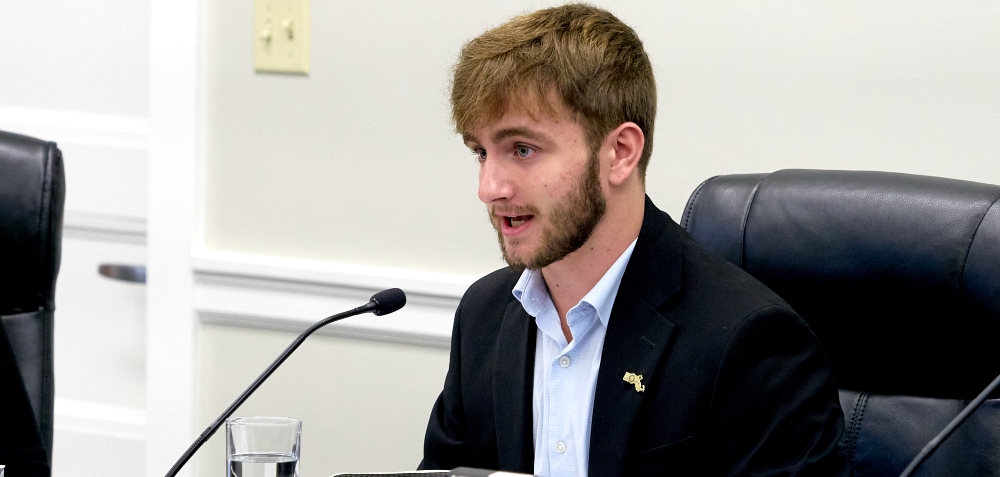
Eighteen-year-old Hunter Young graduated from high school last year, which he said gives him a fresh perspective that could prove useful to the school committee.
Young entered Plymouth South High School as a freshman just as Covid hit. From March to June 2020, he said, he had just one class a week online.
“I don’t think any of us realize the detriment that that had, and especially not being in school full time the next year,” he said. “A lot of students struggled to learn. I think social interaction is a big challenge for a lot of kids now.”
Halfway through his junior year, Young left Plymouth South to be home-schooled.
Since graduating, Young said, he has been doing some tiling, working at his church, attending college online, and producing a political podcast, The Sons of Liberty, with co-host Sam Miele. It’s described as “Christ-filled conservatism from New England with a Gen-Z perspective.”
The podcast features hot button subjects that adhere to conservative beliefs, including: “African pastor deals with witchcraft, Covid lockdowns, and American atheism,” “Is public school human trafficking?” and “Illegal immigration, viability of trade schools, and the climate change hoax.”
In an interview, Young downplayed the provocative nature of his podcast.
“We are very sarcastic a lot,” he said. “We make a lot of tongue-in-cheek comments and jokes.”
But in the episode about public schools, Young trumpets an extreme position on several topics in a discussion with Miele.
“We’re exploiting kids in public school by telling them that evolution is true,” Young says in the podcast. “Sending your kids to public school is human trafficking… Public school is human trafficking because you’re sending your kids to be exploited and lied to… They took God out of public school. Therefore, the purpose of public school is to lie to the kids and bring them up in a system that John D. Rockefeller created to make them into good little factory workers.”
In an interview Tuesday, however, Young contradicted some of those statements, suggesting that he was simply adopting some positions to generate a lively discussion.
“I basically made up a prompt that I knew would get my friend, who I do the podcast with, riled up, and we have a debate about it,” he said. “I don’t actually believe public school is human trafficking.”
But when asked whether he believes climate change is a hoax – as he says on his podcast – Young declined to answer.
“That’s not really relevant to my school committee position,” he said. “I have personal views and those are irrelevant to the school committee because I’m not really here to push my views or my agenda. I’m here to be an advocate for students, teachers, and parents, and do the best job for them.”
Young said the school committee must look at cuts that do not affect student education. Some savings, he suggested, could come from making bus routes more efficient.
“Some of them are half empty,” he said.

Attorney Bethany Rogers, who quit the Plymouth Advisory and Finance Committee to protest its treatment of proponents of a homeless shelter earlier this year, said she did not want that to be the end of her involvement in town government.
With layoffs looming, she said keeping teachers is one of her biggest priorities.
At the April 30 forum, Rogers said the schools could possibly save money on middle school sports by having the town sponsor them through the municipal side of the budget.
“If it’s between laying off teachers and having 30 kids in a classroom or offering a sport that might be offered by the town, we might have to go that route,” she said.

Ashley Shaw, Rogers’s former colleague on the Advisory and Finance Committee, quit the same night Rogers did.
She anticipates that the schools will respond to the budget crunch by cutting arts programs, something she does not agree with.
“We generally cut the arts first,” she said. “They’re usually the first to go.”
Shaw said the schools have already cut as many positions as possible through attrition. The impending layoffs, she believes, will eventually include teachers.
Shaw said she is concerned about teachers leaving for other districts for better pay.
“We are losing quality educators and quality student-facing staff to other districts,” she said.
Shaw said she would like to see more special education students – even those needing the greatest attention – attend neighborhood schools, instead of separate specialized programs outside of the mainstream system.
“A lot of our special education programs take place in specific [outside] schools, and I would love to see a push towards keeping students in their community schools because that way, they’re making friends and making connections with students that are living near them,” Shaw said.
HOUSING AUTHORITY, REDEVELOPMENT AUTHORITY, TOWN MEETING REPS
Voters will also select a member for the five-member Housing Authority and the five-member Redevelopment Authority.
Dennis Albert Sampson is running unopposed for a five-year term on the Housing Authority and Stephen Michael Palmer is running unopposed for re-election to a five-year term on the Redevelopment Authority, which he chairs.
Voters will also choose Town Meeting representatives, three for each of the 18 precincts. Precincts 2 and 4 have attracted the most candidates, five each.
For more information on the May 18 town election – including how you can register and receive an early ballot – please see our sidebar story. Fred Thys can be reached at fred@plymouthindependent.org

